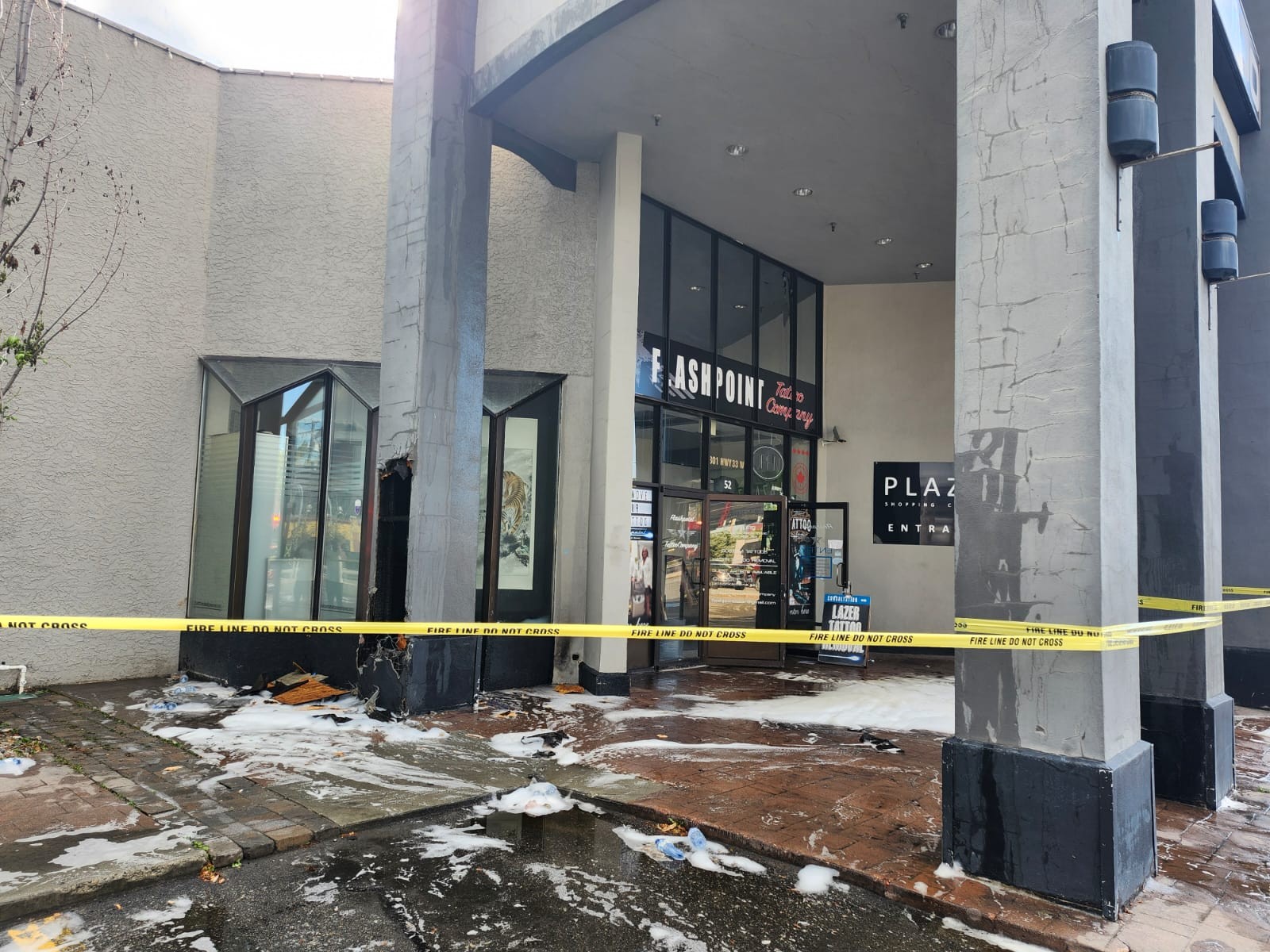Restoration crews have begun a major cleanup effort at Flashpoint Tattoo Company, located in the Rutland shopping plaza in Kelowna, B.C. The tattoo shop sustained significant smoke and water damage following a fire on Tuesday, causing a major disruption to business.
“It’s a major disruption to business,” said Mark Beaulieu, the shop’s owner. The fire started outside the shop and is believed to have been caused by people experiencing homelessness. “From what I hear, it was to warm some spaghetti,” Beaulieu explained.
Beaulieu, who has owned and operated the tattoo shop for 10 years, noted that problems such as fires and crime have become far more common in recent years as the unhoused population grows, along with the associated social issues. “We have had multiple fires here, just people keeping warm,” he said. “Things have gotten really extreme around here. As a matter of fact, my door has a lockout on it now. Some of my staff, they don’t feel safe.”
The Kelowna Fire Department told Global News it is aware of reports that a group of people experiencing homelessness may have been cooking food prior to the flames erupting. However, they added that at this point, the exact cause of the fire remains undetermined.
With the weather quickly turning colder, there are fears that fires started to keep warm will increase. Beaulieu is pleading for more to be done to help those on the streets and, in turn, the many businesses negatively affected by these incidents.
“I would like to see multiple levels of government, you know, address these issues,” Beaulieu said. “Make it a priority. How is this continuing to go on at this level?”
Last week, the city of Kelowna sent a 14-page letter to both the provincial and federal governments urging for action. The letter calls on the federal government to reform the bail system and for the province to hire more Crown prosecutors and implement mandatory compassionate care.
“There’s a group of individuals who need more care, and it is not compassionate to leave them on our streets,” Kelowna Mayor Tom Dyas told Global News on Wednesday.
Beaulieu hopes to see changes implemented soon. “It’s frustrating that I feel like going to Ottawa myself and saying my piece,” he said. “I just feel like we are not being heard.”
For now, Beaulieu is focusing on the insurance and cleanup process to get his business back up and running as soon as possible.
https://globalnews.ca/news/11462175/kelowna-business-pleads-social-issues-forced-to-close/
